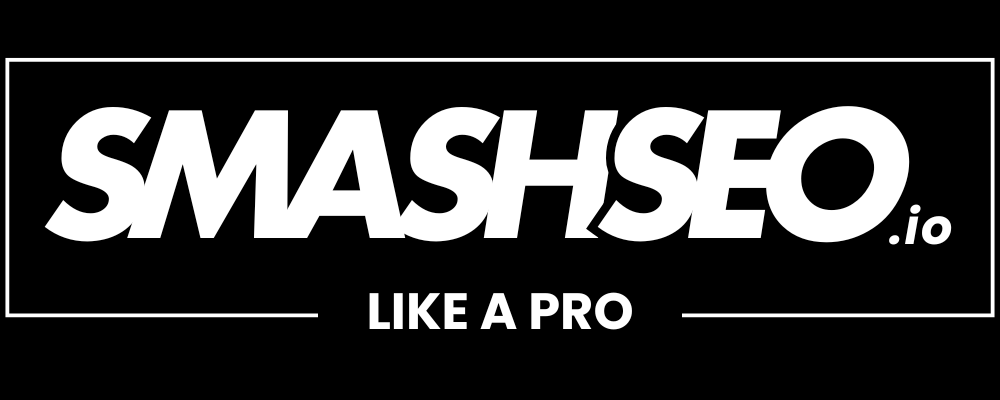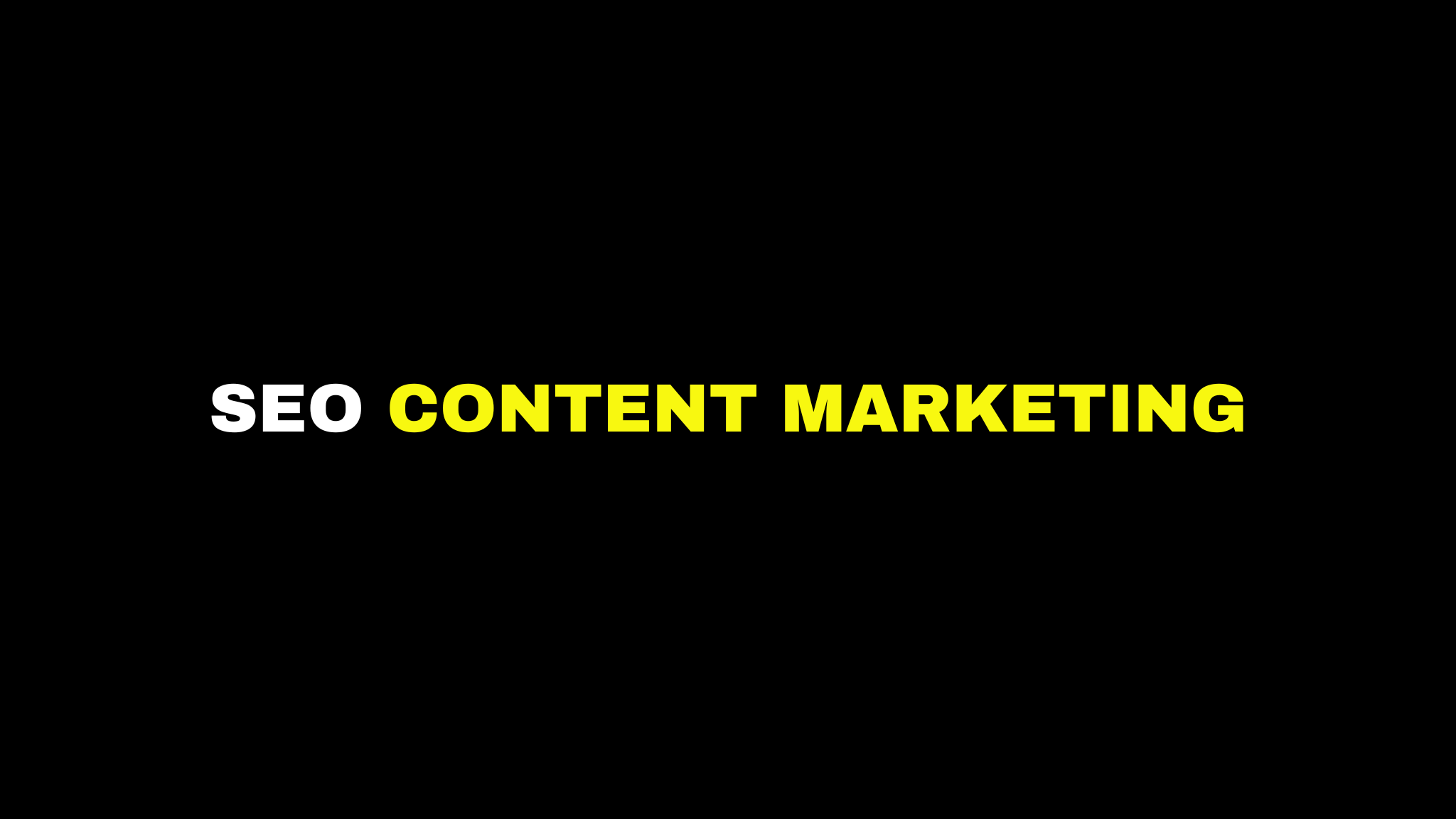A Cost Breakdown of In-House vs. AI-Powered SEO Content
When we launched SmashSEO, we discovered something that fundamentally changed how we think about content marketing costs for UK startups. After analysing hundreds of businesses struggling with their content strategies, we realised that most founders are asking the wrong question entirely. Instead of “How much should we spend on content marketing?”, the real question should be “How can we achieve sustainable organic growth without breaking our budget?”
The reality facing UK startups today is stark. Traditional content marketing approaches demand significant investment in skilled personnel, expensive tools, and time-intensive processes that many growing businesses simply cannot afford. Yet without a robust content strategy, these same startups find themselves trapped in costly paid advertising cycles that deliver diminishing returns. This creates a perfect storm where businesses spend too much on immediate acquisition whilst neglecting the long-term organic growth that could sustain them for years to come.
Through our research and experience helping UK businesses transition from expensive paid channels to sustainable organic growth, we’ve uncovered the true costs of different content marketing approaches. What we found challenges conventional wisdom about startup marketing budgets and reveals why many promising businesses fail to achieve the organic visibility they desperately need.
The Hidden Costs of Traditional In-House Content Teams
Building an in-house content team represents one of the most significant financial commitments a UK startup can make, yet the true costs extend far beyond basic salaries. When we examine the complete picture of in-house content creation, the numbers reveal why so many startups struggle to justify this investment whilst competing for market share.
A competent content marketing manager in the UK typically commands between £35,000 and £55,000 annually, depending on experience and location. However, this represents merely the foundation of your investment. Add employer National Insurance contributions at 13.8%, workplace pension contributions, and the various benefits packages needed to attract quality talent, and you’re looking at a true employment cost of £45,000 to £70,000 per year for a single team member.
But here’s where the costs multiply exponentially. Effective content marketing requires more than just writing ability. Your content manager needs SEO expertise, which often means hiring an additional SEO specialist at £30,000 to £50,000 annually. They’ll need access to premium SEO tools like Ahrefs or SEMrush, costing £2,000 to £5,000 per year. Content creation tools, design software, and project management platforms add another £1,500 to £3,000 annually.
Perhaps most critically, in-house teams require time to develop the deep understanding of your business, industry, and target audience necessary to create truly effective content. During this learning period, which can extend 3-6 months, you’re paying full salaries whilst receiving suboptimal results. For cash-strapped startups, this represents a significant opportunity cost that many cannot afford.
When we calculate the complete first-year investment for a basic in-house content team, UK startups typically face costs between £80,000 and £130,000. This substantial investment assumes everything goes perfectly – no staff turnover, no extended learning curves, and immediate productivity from day one.
Outsourcing Costs: The Freelancer and Agency Alternative
Recognising the prohibitive costs of in-house teams, many UK startups turn to outsourcing as a more flexible alternative. The freelancer market offers apparent cost savings, with content writers charging between £25 and £100 per article, depending on quality and specialisation. SEO-focused content typically commands premium rates, often £50 to £150 per piece for work that incorporates proper keyword research and optimisation.
However, outsourcing presents its own hidden expenses that quickly erode the apparent savings. Quality freelancers require detailed briefs, ongoing communication, and revision cycles that consume significant internal time. Project management overhead alone can represent 20-30% of your total content investment when properly accounted for. Additionally, freelancers rarely provide the consistency in voice, style, and strategic direction that builds strong organic presence over time.
Marketing agencies offer a more comprehensive solution but at considerably higher costs. UK content marketing agencies typically charge between £2,000 and £8,000 per month for ongoing content services, with setup fees often adding another £2,000 to £5,000 to initial costs. While agencies provide expertise and consistency, they also introduce communication delays, reduced control over content direction, and the challenge of ensuring your brand voice translates effectively through external partners.
For startups requiring 8-12 articles per month – a reasonable volume for building organic presence – outsourcing costs typically range from £2,500 to £6,000 monthly. Over a full year, this represents £30,000 to £72,000 in direct costs, before accounting for internal management time and the opportunity costs of slower content production cycles.
The AI-Powered Revolution: Redefining Content Marketing Economics
The emergence of AI-powered content generation has fundamentally altered the economics of content marketing for UK startups. Rather than simply replacing human creativity, advanced AI platforms like ours combine sophisticated SEO knowledge with content generation capabilities, creating an entirely new paradigm for sustainable organic growth.
What makes AI-powered content particularly revolutionary for startups is the dramatic reduction in both direct costs and time investment. Where traditional approaches require months of hiring, training, and optimisation, AI-powered platforms like SmashSEO can begin producing optimised content immediately. This speed-to-market advantage proves crucial for startups competing against established players with deeper resources.
The cost structure of AI-powered content generation reflects this efficiency. Our platform, for example, enables startups to produce 20-50 SEO-optimised articles monthly for a fraction of traditional costs. This volume would require multiple full-time staff members or substantial agency retainers using conventional approaches, yet AI platforms deliver comparable quality with superior consistency and speed.
More importantly, AI-powered content generation eliminates many of the hidden costs that plague traditional approaches. There’s no staff turnover, no learning curves, no communication delays, and no project management overhead. The platform learns your brand voice, industry requirements, and SEO objectives, then applies this knowledge consistently across all content creation.
According to industry reports, businesses utilising AI for content optimisation and performance see significant improvements in both efficiency and results. This technological advantage becomes particularly pronounced when considering the long-term sustainability of content marketing investments.
Real-World Case Study: From £10K Monthly Ad Spend to Organic Growth
To illustrate the practical impact of these different approaches, let’s examine a real scenario we encountered with a UK technology startup. This company was spending £10,000 monthly on paid advertising across Google Ads and social media platforms, achieving moderate lead generation but struggling with rising acquisition costs and decreasing return on investment.
Initially, they considered building an in-house content team. The projected costs included a content manager at £45,000 annually, an SEO specialist at £40,000, plus tools and overheads totalling £15,000. This £100,000 annual investment would have consumed nearly their entire marketing budget whilst providing uncertain returns and requiring 6-12 months to show meaningful results.
Instead, they chose to redirect their paid advertising budget towards AI-powered content generation using our platform. For less than £500 monthly, they began producing 50 SEO-optimised articles per month, each targeting specific keywords relevant to their industry and audience. Within three months, their organic traffic increased by 180%, and within six months, organic leads exceeded their previous paid advertising results.
The financial transformation proved remarkable. By reallocating their £10,000 monthly ad spend to a combination of AI-powered content generation and strategic SEO implementation, they achieved superior lead quality whilst building long-term organic assets. Their cost per lead decreased by 65%, and unlike paid advertising, their organic presence continued generating leads even when they reduced spending.
This case study demonstrates why understanding what SEO truly means for startups becomes crucial for making informed content marketing investments. The compound effect of consistent, optimised content creation delivers exponentially better returns than traditional approaches, particularly when implemented through efficient AI-powered platforms.
Budget Recommendations for UK Startups
Based on our analysis of successful UK startups and their content marketing investments, we recommend a tiered approach to budgeting that aligns with business stage and growth objectives. These recommendations reflect real-world constraints whilst maximising the potential for sustainable organic growth.
For early-stage startups with limited funding, we suggest allocating 15-20% of total marketing budget to content marketing, with emphasis on AI-powered solutions that maximise output whilst minimising fixed costs. This typically translates to £500-2,000 monthly for businesses with marketing budgets under £10,000. The key is choosing platforms that provide immediate value without requiring substantial upfront investment or long-term commitments.
Growth-stage startups with established revenue streams should consider increasing content marketing investment to 25-30% of marketing budget, allowing for more aggressive content production and broader keyword targeting. For these businesses, monthly content marketing budgets of £2,000-5,000 enable comprehensive organic growth strategies that can significantly reduce dependence on paid advertising channels.
Scaling startups preparing for major growth phases benefit from content marketing investments representing 30-40% of marketing budget. At this stage, the compound effects of consistent content production create substantial competitive advantages, and budgets of £5,000-10,000 monthly enable market-leading organic presence.
Regardless of budget level, we strongly recommend prioritising solutions that combine SEO expertise with efficient content generation. The most successful startups we’ve worked with focus on building sustainable organic assets rather than pursuing short-term traffic spikes, and AI-powered platforms provide the ideal balance of cost-effectiveness and strategic value.
Measuring Content Marketing ROI: What UK Startups Should Track
Understanding content marketing costs requires equally sophisticated measurement of returns, yet many UK startups struggle to identify the metrics that truly indicate success. Traditional marketing KPIs often fail to capture the long-term value creation that effective content marketing provides, leading to misguided budget decisions and missed opportunities.
The most critical metric for startup content marketing is organic lead generation, measured both in volume and quality. Unlike paid advertising leads that disappear when spending stops, organic leads represent sustainable business growth that compounds over time. According to research from Harvard Business School, businesses should track not just immediate conversion rates but also the lifetime value of organically acquired customers, which typically exceeds paid acquisition by 25-40%.
Search engine rankings for target keywords provide another essential measurement, particularly when tracked against competitive positions. Startups should monitor not just overall rankings but also the diversity of keywords driving traffic, as broader organic visibility indicates stronger long-term sustainability. Tools that track ranking improvements across hundreds of relevant terms provide more meaningful insights than focusing on individual keyword positions.
Content engagement metrics, including time on page, bounce rate, and social sharing, reveal the quality and relevance of your content strategy. High engagement rates indicate that your content resonates with target audiences, leading to better search engine performance and increased organic reach. These metrics become particularly valuable when compared across different content types and topics, revealing which approaches generate the strongest audience response.
Perhaps most importantly, startups should measure the reduction in paid advertising dependence as organic presence grows. The most successful content marketing strategies enable businesses to maintain or increase lead generation whilst reducing paid advertising spend. This metric directly translates content marketing investment into measurable cost savings and improved profit margins.
Making the Right Choice for Your Startup
The decision between in-house teams, outsourcing, and AI-powered content generation ultimately depends on your startup’s specific circumstances, but the data clearly favours approaches that maximise efficiency whilst minimising fixed costs. For most UK startups operating under typical budget constraints, AI-powered platforms provide the optimal balance of cost-effectiveness, scalability, and strategic value.
Consider choosing in-house teams only if you have substantial marketing budgets exceeding £200,000 annually and require highly specialised industry expertise that generic solutions cannot provide. Even then, hybrid approaches combining AI-powered efficiency with human oversight often deliver superior results at lower costs.
Outsourcing remains viable for startups requiring specific expertise or facing temporary capacity constraints, but the long-term economics rarely favour this approach for ongoing content needs. The project management overhead and communication challenges typically offset cost savings, particularly for businesses requiring consistent, high-volume content production.
AI-powered content generation represents the future of startup content marketing, offering immediate scalability, consistent quality, and cost structures that align with startup growth patterns. Platforms like ours enable businesses to achieve enterprise-level content marketing results without enterprise-level budgets, creating sustainable competitive advantages that compound over time.
The key is starting with a solution that can grow with your business. Rather than committing to expensive fixed-cost approaches, choose platforms that scale efficiently as your content needs expand. This flexibility proves crucial for startups navigating uncertain growth trajectories and changing market conditions.
As we’ve seen through our work with UK startups, the businesses that succeed in building sustainable organic growth are those that embrace efficient, scalable solutions early in their journey. The compound effects of consistent, optimised content creation create exponential value over time, but only when implemented through cost-effective platforms that align with startup realities.
If you’re ready to transform your content marketing approach and build sustainable organic growth without breaking your budget, we invite you to explore how SmashSEO can revolutionise your content strategy. Our AI-powered platform combines best-in-class SEO expertise with efficient content generation, enabling UK startups to compete effectively against established players whilst maintaining healthy profit margins. Register your interest today and discover how we’re helping businesses transition from expensive paid advertising to sustainable organic growth.
Frequently Asked Questions
What’s the minimum budget a UK startup should allocate to content marketing?
We recommend UK startups allocate at least £500-1,000 monthly to content marketing, representing 15-20% of total marketing budget. This investment level enables consistent content production through AI-powered platforms whilst building sustainable organic assets. Smaller budgets rarely generate sufficient content volume to impact search rankings meaningfully, whilst larger investments provide exponentially better returns through compound organic growth effects.
How quickly can startups expect to see ROI from content marketing investments?
Content marketing ROI typically begins appearing within 3-6 months for startups using optimised, AI-powered approaches, with significant results evident by month 6-12. Unlike paid advertising that provides immediate but temporary results, content marketing builds cumulative value over time. Early indicators include improved search rankings and increased organic traffic, whilst meaningful lead generation usually develops after 6-9 months of consistent content production.
Should startups prioritise content marketing over paid advertising in their early stages?
Early-stage startups benefit most from balanced approaches that combine immediate paid advertising results with long-term content marketing investments. We recommend allocating 60-70% of marketing budget to proven paid channels for immediate lead generation, whilst investing 30-40% in content marketing for sustainable growth. This strategy provides short-term revenue whilst building organic assets that reduce future advertising dependence and improve long-term profitability.



